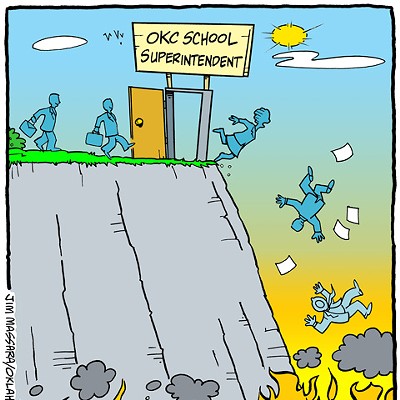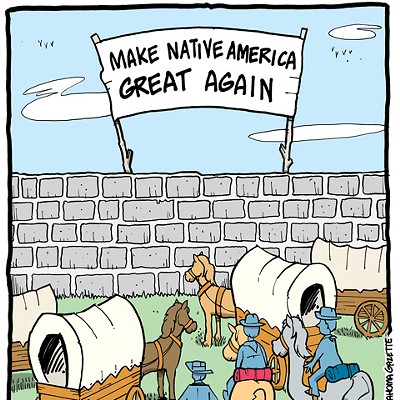The Thunder basketball team has proven Oklahoma City is in the big leagues now, and MAPS 3 promises to keep the city's momentum going for years to come.
But there's at least one thing holding the city back: Oklahoma's antiquated, dysfunctional liquor laws. It's the drunken, hypocritical elephant in the room often invisible to city leaders, but its negative economic development impact on Oklahoma City will only become more difficult to dispute as the city moves forward.
Who wants to move to a city where you can't even buy high-point, chilled beer and wine at grocery stores? How can urban living flourish in downtown without the type of grocery stores in demand in cities like Austin and Dallas? Why hold Oklahoma City back?
State Sen. Andrew Rice, D-Oklahoma City, and others have begun asking these types of basic questions. Rice recently offered legislation that would have allowed voters to decide if grocery stores could sell high-point beer and wine in Oklahoma and Tulsa counties. The bill was killed in a Senate committee, but the fight for modern liquor laws is not over.
In an e-mail interview, Rice makes it clear the issue is about economic development.
"The most popular and successful major grocery chains nationally do not like to put stores in states where they cannot sell wine because it is such a key percentage of their profits," Rice said. "People do not want to relocate to downtown and Midtown OKC because these types of grocers are not there, and young, dynamic, successful talent do not want to work in OKC when they can go live in Dallas or Austin and have these amenities at their disposal."
Rice calls changing the liquor laws a "key component" that could be part of the "right things" Oklahoma City has recently accomplished to make it a dynamic place. He also point outs those popular grocery stores the city could attract offer healthy foods.
The opposition to allowing high-point beer and wine sales in grocery stores has usually come from three groups: retail liquor interests, people who argue it could lead to more underage drinking and religious groups.
But more economic and housing development will mean more business for liquor stores. People will still buy hard liquor. Does anyone doubt that?
There's no convincing proof that allowing grocery stores to sell wine and stronger beer will lead to more underage drinking. At least one study, conducted by the federal Substance Abuse and Mental Health Services Administration, shows some states that allow grocery stores to sell wine and hard liquor have lower underage drinking rates than Oklahoma. Grocery stores here would be careful about requiring identification on liquor sales because of the risk to their investment if they encountered legal problems.
As far as the religious folks go, remember this: People can already buy liquor in large quantities in Oklahoma City.
The liquor laws in Oklahoma affecting the city have long drawn the incredulity of local and visiting imbibers, who find it absurd grocery stores don't offer Merlots, the latest ales and high-point Budweiser. It makes the city seem backwards, it's inconvenient and it inhibits downtown growth.
Surely, reasonable people can come together and find a way to change the liquor laws so Oklahoma City can prosper.
Hochenauer is an English professor at the University of Central Oklahoma and the author of the Okie Funk blog.












